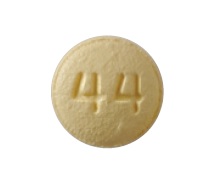Risedronate Disease Interactions
There are 5 disease interactions with risedronate.
Bisphosphonate (applies to risedronate) ONJ
Major Potential Hazard, Moderate plausibility. Applicable conditions: Infection - Bacterial/Fungal/Protozoal/Viral
Osteonecrosis of the jaw (ONJ), which can occur spontaneously, is generally associated with tooth extraction and/or local infection with delayed healing, and has been reported in patients taking bisphosphonates. Known risk factors for osteonecrosis of the jaw include invasive dental procedures (e.g., tooth extraction, dental implants, boney surgery), diagnosis of cancer, concomitant therapies (e.g., chemotherapy, corticosteroids, angiogenesis inhibitors), poor oral hygiene, and co-morbid disorders (e.g., periodontal and/or other pre-existing dental disease, anemia, coagulopathy, infection, ill-fitting dentures). The manufacturers of bisphosphonates recommend discontinuation of bisphosphonate treatment for patients undergoing invasive dental procedures. Patients who develop osteonecrosis of the jaw while on bisphosphonate therapy should receive care by an oral surgeon. In these patients, extensive dental surgery to treat ONJ may exacerbate the condition. Discontinuation of bisphosphonate therapy should be considered based on individual benefit/risk assessment.
Bisphosphonates (applies to risedronate) hypocalcemia
Major Potential Hazard, High plausibility. Applicable conditions: Vitamin D Deficiency
The use of bisphosphonates is contraindicated for the treatment of osteoporosis in patients with hypocalcemia. These agents increase bone mineral density, a process that requires an adequate supply of calcium in the body. Following the initiation of therapy, a short-term reduction in serum calcium and phosphate levels usually occurs due to inhibition of bone resorption, especially in patients with Paget's disease, in whom the pretreatment rate of bone turnover may be greatly elevated. Hypocalcemia and other disturbances of mineral metabolism, such as vitamin D deficiency, should be treated prior to initiation of therapy. Appropriate intake of calcium and vitamin D should be ensured throughout the course of treatment.
Bisphosphonates (applies to risedronate) upper GI mucosal irritation
Major Potential Hazard, High plausibility. Applicable conditions: Duodenitis/Gastritis, Dyspepsia, Dysphagia, Esophageal Disease, Peptic Ulcer
Bisphosphonates may cause local irritation of the upper gastrointestinal mucosa. Esophagitis and esophageal ulcers and erosions, occasionally with bleeding, as well as gastric and duodenal ulcers, have been reported, primarily with alendronate. Because of their structural similarities, therapy with all bisphosphonates should be administered cautiously in patients with active upper gastrointestinal disorders. The usual precautions should be followed closely to minimize the risk of irritation (i.e. taking the medication with a full glass of water after arising for the day and remaining upright for at least 30 minutes afterwards and until the first food intake of the day). Therapy should be discontinued if dysphagia, odynophagia or retrosternal pain occurs. The manufacturer of alendronate considers its use to be contraindicated in patients with abnormalities of the esophagus that may delay esophageal emptying, such as stricture or achalasia.
Bisphosphonates (applies to risedronate) asthma
Moderate Potential Hazard, Moderate plausibility.
There have been reports of bronchoconstriction in aspirin-sensitive patients receiving bisphosphonates. Use of these agents in asthmatic and in aspirin-sensitive patients should be used with caution.
Risedronate (applies to risedronate) renal dysfunction
Moderate Potential Hazard, Moderate plausibility.
Risedronate is primarily eliminated by the kidney. The renal clearance of the drug is decreased in patients with impaired renal function. Risedronate is not recommended for use in patients with creatinine clearance less than 30 mL/min due to a lack of clinical experience in this setting. No dosage adjustment is necessary in patients with mild to moderate renal impairment (CrCl >= 30 mL/min).
Switch to professional interaction data
Risedronate drug interactions
There are 113 drug interactions with risedronate.
Risedronate alcohol/food interactions
There are 2 alcohol/food interactions with risedronate.
More about risedronate
- risedronate consumer information
- Check interactions
- Compare alternatives
- Pricing & coupons
- Reviews (79)
- Drug images
- Side effects
- Dosage information
- Patient tips
- During pregnancy
- Drug class: bisphosphonates
- Breastfeeding
- En español
Related treatment guides
Drug Interaction Classification
| Highly clinically significant. Avoid combinations; the risk of the interaction outweighs the benefit. | |
| Moderately clinically significant. Usually avoid combinations; use it only under special circumstances. | |
| Minimally clinically significant. Minimize risk; assess risk and consider an alternative drug, take steps to circumvent the interaction risk and/or institute a monitoring plan. | |
| No interaction information available. |
See also:
Further information
Always consult your healthcare provider to ensure the information displayed on this page applies to your personal circumstances.


